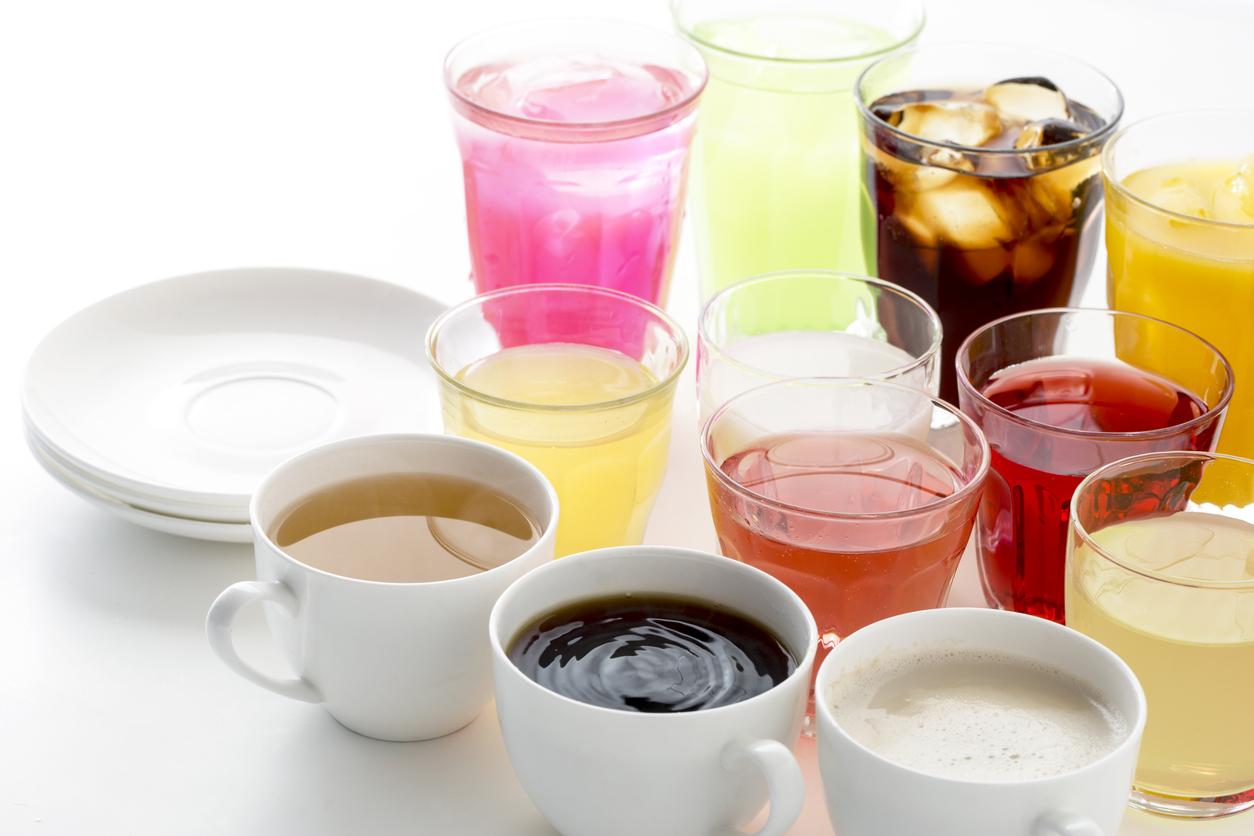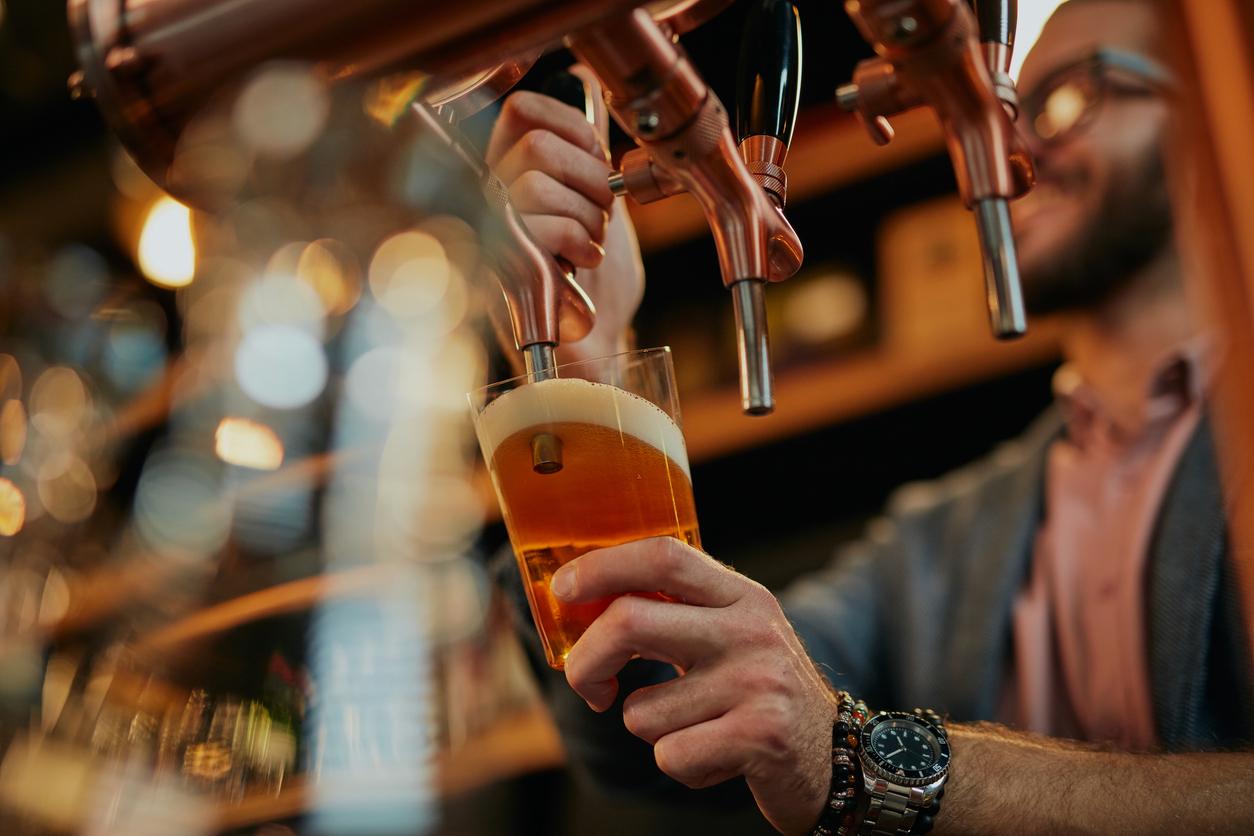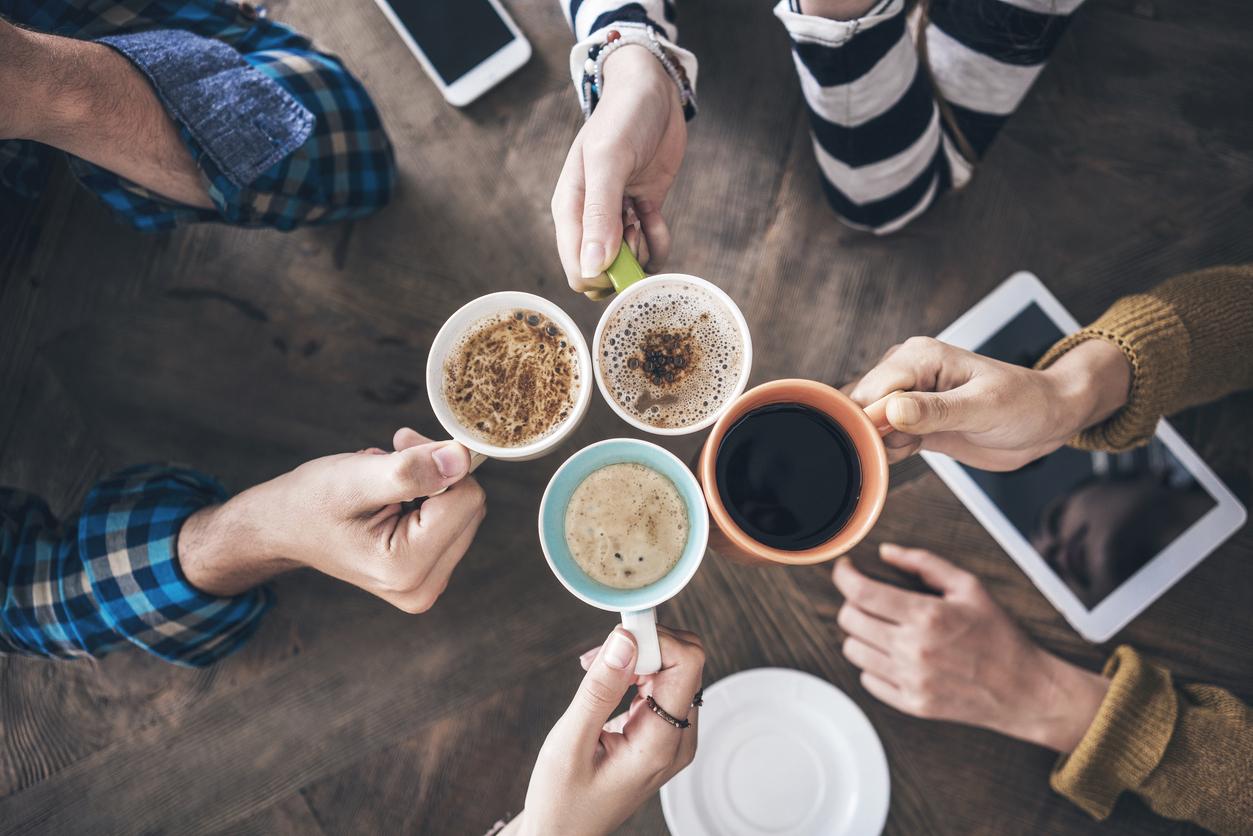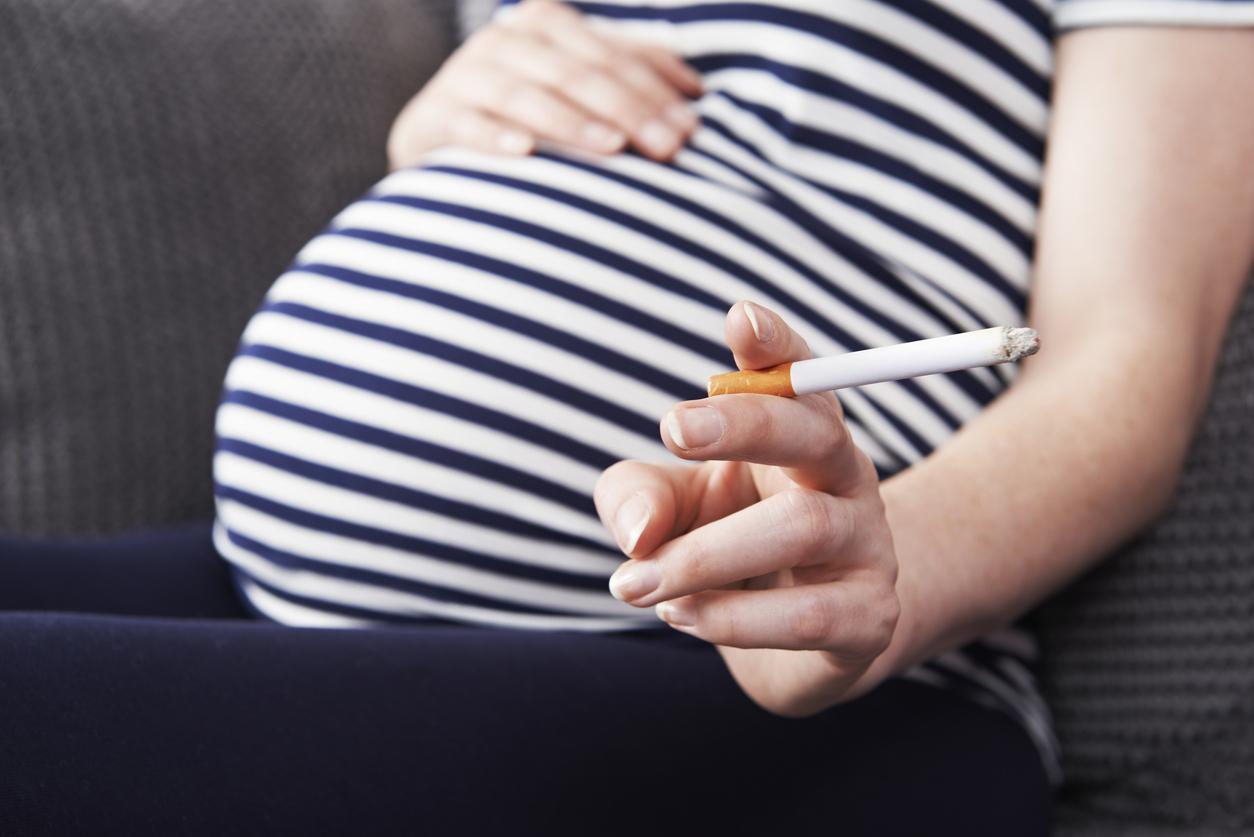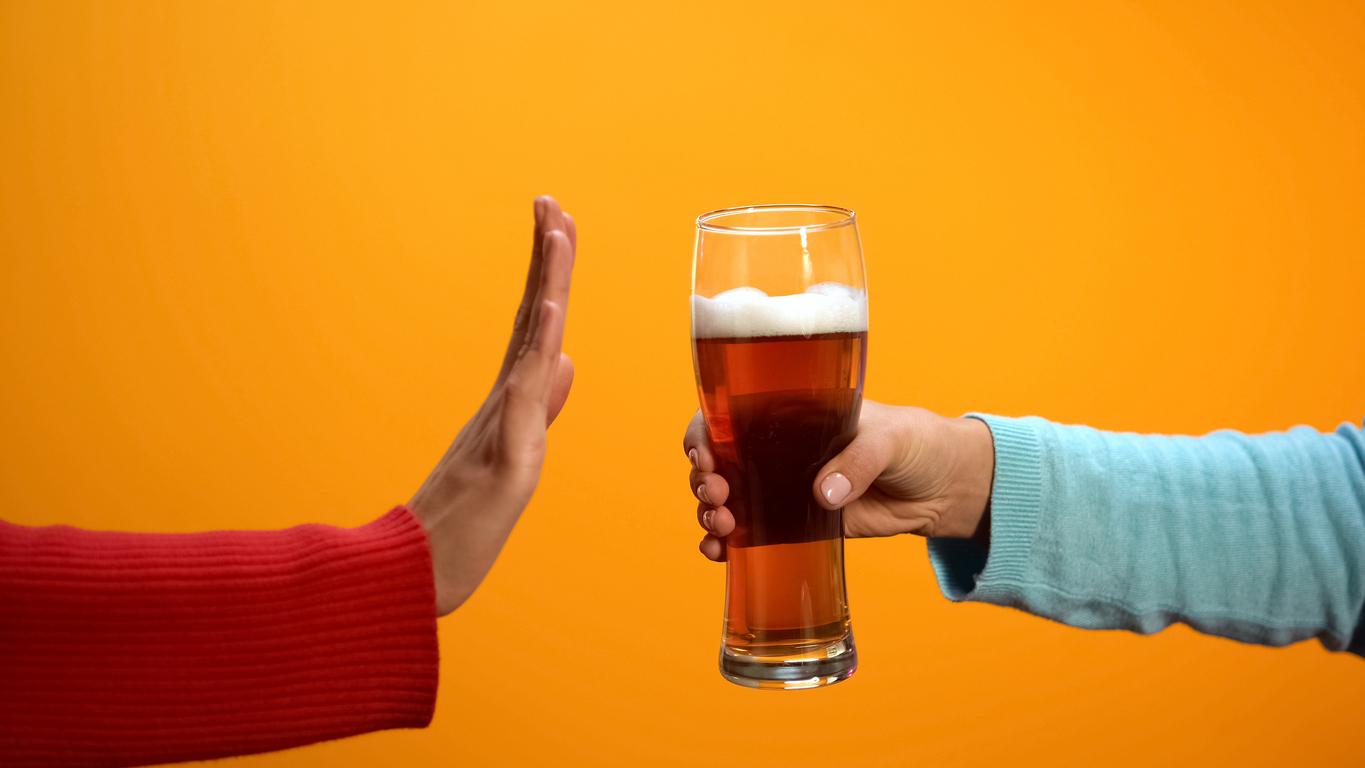Contrary to what one might think, water is not the most effective drink for long-term hydration. Rich in fat, protein and sodium, milk, on the other hand, would be the champion in this area.
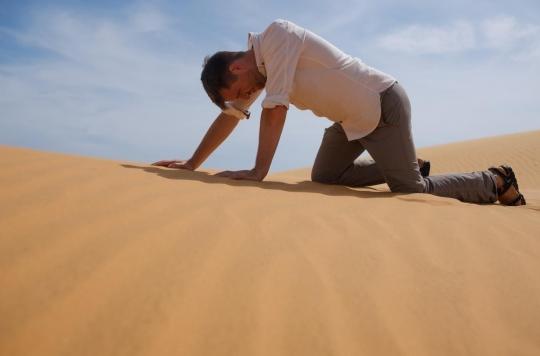
This will surprise more than one. While we are told all day long to drink as much water as possible to have beautiful skin, avoid urinary tract infections, hangovers or renal colitis, it would not be the most hydrating drink in the long run. term. According to a study published in 2015 in Tea American Journal of Clinical Nutrition and relayed by CNN end of September, the day after the evening or during a long-haul flight, it would be better to drink milk. Rich in fat, protein and sodium, it stays in the body much longer.
In Scotland, Ronald Maughan, a professor at St. Andrews’ School of Medicine, and his colleagues studied 13 different beverages to determine which was the most hydrating. To do this, they followed the urinary output of 72 healthy, physically active male volunteers between the ages of 18 and 35. Result: skimmed milk comes out on top.
Although water does a great job of hydrating and working on the body immediately, it lacks a few key ingredients for it to really work effectively in the body, the researchers explain. Due to the lack of fat, salt and sugar, when we drink water, it almost immediately empties from the stomach and is absorbed into the bloodstream.
A cup of coffee is said to have similar effects to water
“If you’re drinking water and within two hours your urine output is really high and (your urine) is clear, that means the water isn’t staying in well,” explains David Nieman, professor of public health at Appalachian State University and director of the Human Performance Lab at the North Carolina Research Campus in TIME about a previous study on the subject. “There is no virtue in this kind of consumption.”
In contrast, the fat, protein, salt and sugar content of milk helps coat the stomach when drunk. Sodium, on the other hand, acts like a sponge, reducing the production of urine and retaining water longer.
As for coffee, its hydration quality depends on the amount you consume. According to the researchers, one coffee contains about 80 milligrams of caffeine. A drunk cup would give the same results as water. And, if you’re wondering about alcohol’s ability to hydrate, again, it all depends on how much you drink. “Beer would cause less water loss than whiskey, because you ingest more liquid with beer. Drinks with strong alcohol dehydrate, not diluted alcoholic drinks”, explains Ronald Maughan.
Implications for athletes
Finally, at the risk of disappointing more than one, sodas and fruit juices are absolutely not recommended for hydration because they contain too much sugar. While they can spend longer in the stomach and empty more slowly than regular water, once these beverages enter the small intestine, their high concentration of sugars becomes diluted during a physiological process called osmosis. This process “pulls” water from the body into the small intestine to dilute the sugars in these drinks. However, everything inside the intestine is technically outside your body.
But this study especially has implications for athletes. Ordinary people can continue to drink water without any problem, say the researchers. “If you are thirsty, your body will tell you to drink more. But for athletes who train seriously in hot conditions with high sweat losses, or for someone whose cognitive function may be negatively affected by long working hours without drink breaks, hydration becomes a critical issue,” says Maughan.
“This study confirms a lot of things we already knew. Electrolytes, like sodium and potassium, contribute to better hydration while the calories in drinks lead to slower gastric emptying, and therefore slower urination,” concludes dietitian Melissa Majumdar, outside of this work, to CNN.
Remember, however, that milk is not ideal for everyone. Although it is recommended for children to promote their growth and strengthen their bones, many adults digest it very badly. In addition to problems of intolerance, this beverage is a source eternal controversy in the scientific community. Some studies have shown a link between too much milk consumption and the development of type 1 diabetes. According to the Harvard School of Public Health, men consuming more than one serving of whole milk per day have more risk of suffering from prostate cancer. Furthermore, according to work carried out on more than 100,000 people over twenty years, women who drink more than three glasses of milk per day (680 ml) have a 90% higher risk of death and a 60% higher risk of hip fracture compared to those who drink less than one glass per day . Also, unless you’re running a marathon, stay in the water!
.











